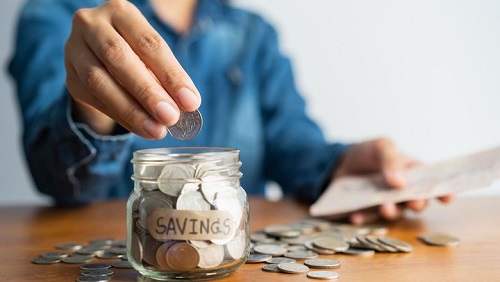
Everyone should want to be able to save money. If you don’t have any emergency funds set aside, you risk accruing unmanageable debt when unanticipated expenses such as car repairs or medical bills crop up. Break the loop by implementing any of these basic money-saving tips. Saving is vital for everything from an emergency fund to debt repayment. This tutorial will show you some basic strategies to save money rapidly.
Understand the Value of Saving
One of the most crucial things to keep in mind when saving is the initial reason why saving is necessary. You can avoid slipping off the savings waggon by always remembering why you are saving. Do it if you need to write a note to yourself and stick it to the mirror in your restroom. Comprehending the significance of saving is a fundamental step in effecting genuine change. Among the most crucial things you can do for your financial well-being are paying off debt, setting aside money for emergencies, and getting ready for major purchases.
READ ALSO: Here is why Chief Imam is trending
Monitor Your Expenses
It is difficult to save money if you don’t know where it is going. Knowing what you’re spending your money on is essential for keeping tabs on your expenditures. You may incur greater costs than you anticipate when you spend money without monitoring it. Keep track of your expenditures on your phone, in a spreadsheet, or even on regular paper to gain a better understanding of how much money is leaving your account. Regardless matter where you do it, record every purchase you make with money.
Maintain a Budget
You can create a more reasonable budget if you understand where your money is going. Although it may be tempting to keep numbers as low as possible in order to fit as much as possible into the budget, you might not be able to control your spending if they aren’t based on accurate data. Suppose, for example, that you wish to cut your weekly grocery expenditure from $400 to $200 for your family of five. You are setting up your budget for failure by utilising such a low estimate. Overestimating expenses is preferable to underestimating them.
Pay in Cash
It may help to start paying with cash if you find that using your credit or debit card to make excessive purchases is difficult. In this manner, you can’t pay for anything you’re attempting to do if you don’t have the money. Your brain may learn from this to stop using your credit card as a default. Making all of your payments with cash does take some planning and awareness. When your spending limit is limited, you’ll need to consider your options carefully before making rash purchases or failing to read price tags.
Make It Automatic
One of the easiest ways to save money quickly is to make it automatic. When money is automatically taken from your checking account, it can quickly go into your savings without you even realizing it was there. You can do this online at almost every bank. Select a sum of money that will allow you to create a true nest egg, but avoid going overboard and having to use it to cover expenses for groceries or bills. Your savings can grow even if you transfer a modest, manageable amount each week, pay period, or month.
Maintain a Savings Log
You should use a savings notebook or spreadsheet to track your savings growth in addition to tracking your spending. You may track your progress, identify areas for improvement, discover where you saved the most money, and even find new places to reduce or save. Whatever method you use for keeping track of things, make sure to consistently record your progress in writing. Even though it can seem time-consuming, investing a few minutes each week to accomplish this will enable you to see the big picture and the incredible progress you have achieved. This in turn encourages wiser financial choices and practises.
Use an App for Budgeting
There are several excellent budgeting applications available that may assist you in tracking your progress and maintaining focus. Usually, budgeting applications link to every bank account on your account. They can be connected to credit cards, savings accounts, and bank accounts. Not only will using an app help you keep better track of your savings, but it will also allow you to see precisely where your money is going. For even more financial information, several budget applications break down your expenditure into categories such as bills, entertainment, food, vacation, and more.
Have Weekly Check-Ins
When you’re working on saving money, it’s important to regularly check in with yourself. Think of it as a weekly or monthly budget meeting at work. These check-ins allow you to see your progress and make adjustments for the following week or month. You may make advance plans for future needs, budgets, and savings objectives during these discussions with your spouse, yourself, or your family. If you need to save more money or incur a significant expense in order to meet one of your financial objectives, you can establish appropriate plans.
Have No-Spend Days
Spend-free days or weeks are an excellent method to start saving money right now. Select a period of time, whatever it may be, during which you are not permitted to purchase any non-essential items. Shopping, getting takeaway, coffee, going to the movies and anything else you think is not absolutely necessary are examples of non-essentials. Try it out for one day at first, and then for a week. You’ll become easier at it every time as you work your way up to a month.
Set Up a Secret Bank Account
When you can always see the money in your checking or main savings account, it can be hard to let that money sit there without spending it. A secret bank account can be a great way to save some extra money without the temptation to spend it. If this is something you have a hard time with, take some of your savings and put it in an online bank account or another account at your bank. Set up automatic payments and then lose your login. Now it’s a lot harder to take money out.



